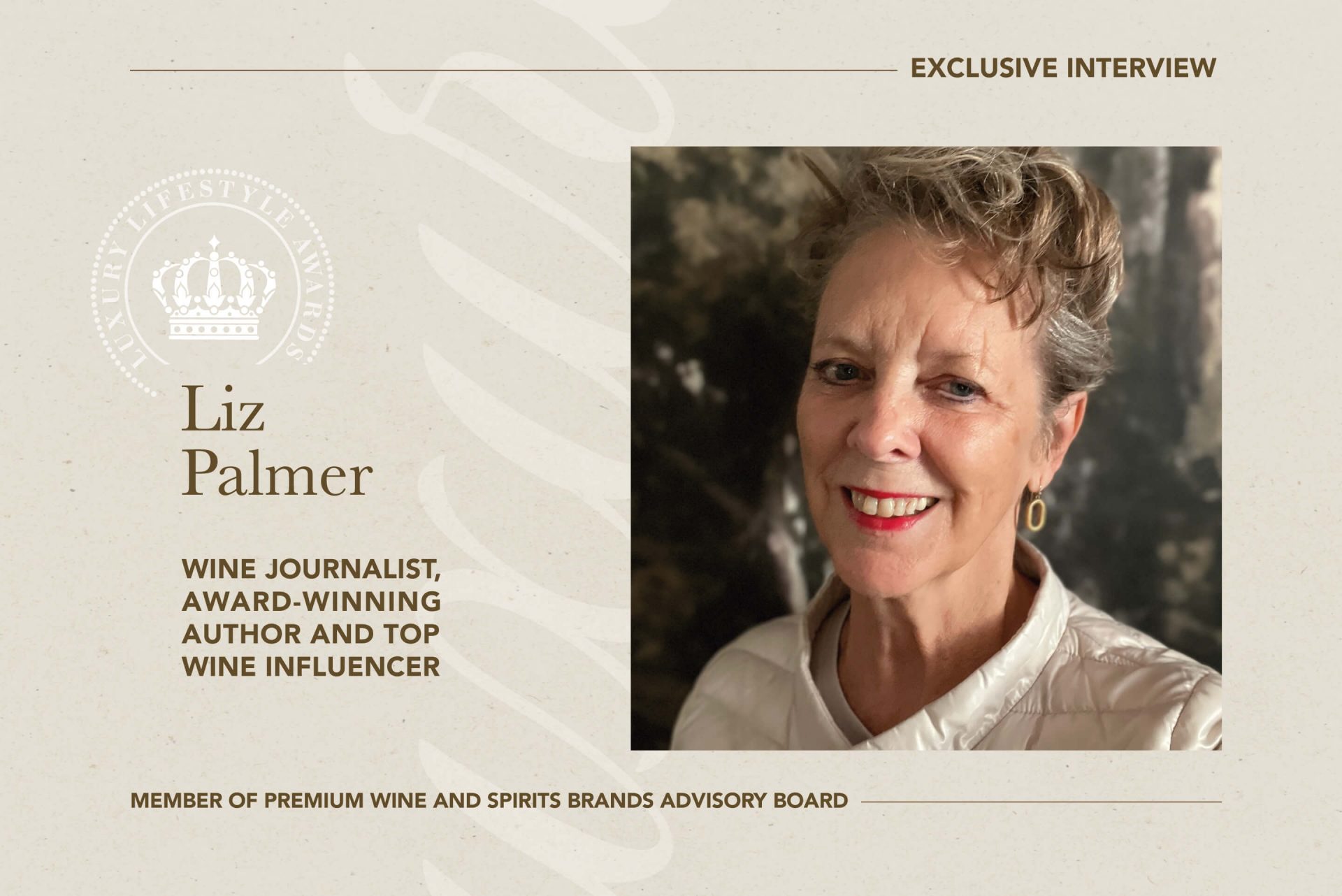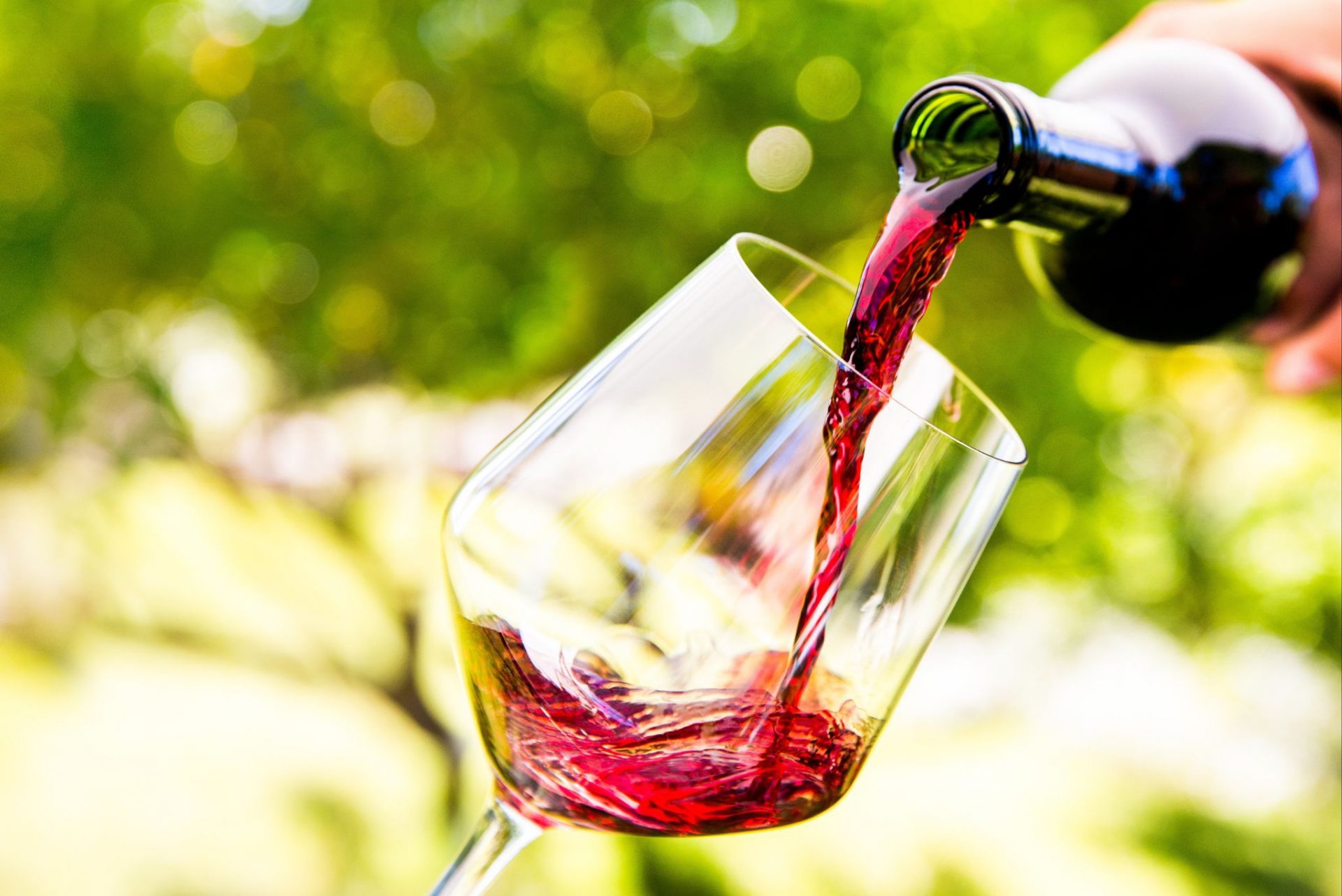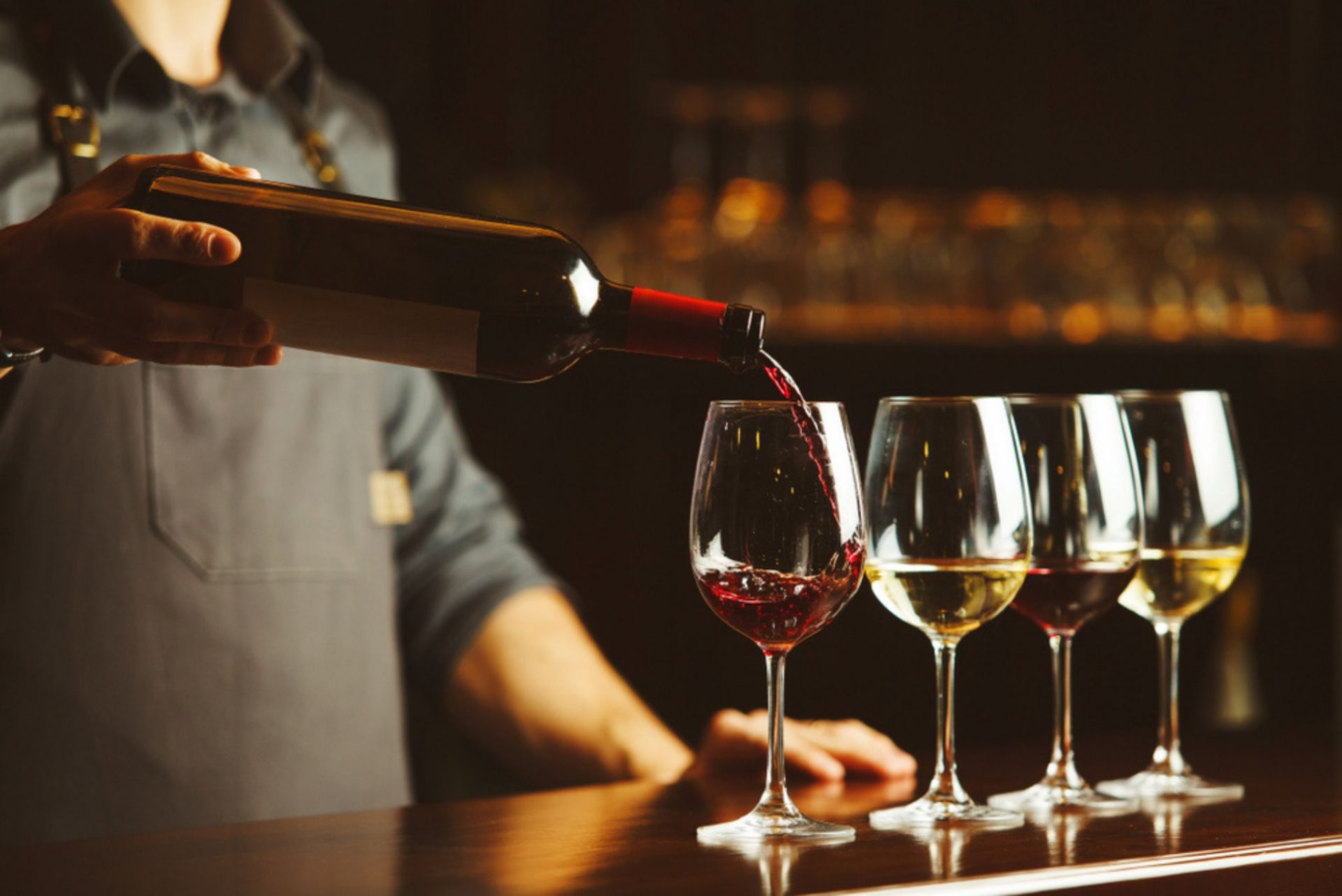
Have a question? Call now! +1 646 810 8764

Welcome to Luxury Lifestyle Awards!
Would you like to talk to one of our award managers about nomination of your company?
Our team is happy to help with any questions you may have.
Call: +1 646 810 8764 Send Email Live Chat Contact Us23.02.2024

Meet Liz Palmer, a distinguished figure in the world of wine and luxury lifestyle. Recently appointed to the Luxury Lifestyle Awards Wine & Spirits Advisory Board, Liz brings a wealth of experience as a renowned wine journalist, author, and influencer. Join us as we take a look into her journey, expertise, and aspirations within the world of luxury wines and spirits.
Luxury Lifestyle Awards (LLA): Congratulations on your appointment to the Luxury Lifestyle Awards Wine & Spirits Advisory Board, Liz. With your extensive experience as a wine journalist, what inspired you to join the advisory board, and what do you hope to bring to the table?
Liz Palmer (LP): Thank you for the congratulations! I’m thrilled to be appointed to the Luxury Lifestyle Awards Wine & Spirits Advisory Board.
What inspired me to join the Advisory Board is the opportunity to contribute to an organization that recognizes and celebrates excellence in the global wine and spirits industry.
Joining this advisory board will allow me to leverage my leadership skills, experience, and insights. I’m also inspired by the opportunity to collaborate with other industry professionals, share knowledge, and contribute to shaping the future of the luxury lifestyle sector.
LLA: Your book, “The Ultimate Guide To Champagne,” has received widespread acclaim and has won multiple awards, including the National Award for the best French Wine Book. How do you think your expertise in Champagne specifically will contribute to the Wine & Spirits Advisory Board’s endeavors?
LP: I dedicated over seven years, of my time, to studying and writing about this sector, and thus brings several valuable contributions to the Wine & Spirits Advisory Board: In-depth knowledge of the industry; extensive tasting and judging experience; trends and innovation; sustainability initiatives; educational initiatives; and global perspectives of the champagne industry.
LLA: You’ve had the opportunity to write for various prestigious publications such as Forbes, Huffington Post, and China Wine News, and your own website www.liz-palmer.com. How has your background in journalism shaped your perspective on the wine and spirits industry?
LP: My background as a wine journalist has significantly shaped my perspective on the wine and spirits industry in several key ways:
Research Skills: Thorough research and fact-checking are skills that are essential for understanding and reporting on complex topics, and It has also taught me how to gather information from multiple sources;
Objectivity: Wine and spirits journalism values objectivity and impartiality; while I have my personal preferences and opinions, I strive to present information in a neutral manner, allowing readers to form their own conclusions;
Storytelling: At its core, journalism is about storytelling – finding compelling narratives and conveying them in a clear, engaging manner; I aim to bring stories to life, capturing the passion, history, and cultural significance behind each bottle.
Audience Engagement: Wine journalism emphasizes understanding and connecting with your audience, tailoring content to their interests, needs, and preferences. I strive to make complex topics accessible and engaging for a diverse audience of both enthusiasts and professionals.

LLA: Being appointed as Dame Chevalier de L’Ordre des Coteaux de Champagne is a remarkable achievement. How has this honor influenced your approach to promoting and advocating for the appreciation of Champagne and other fine wines?
LP: Being appointed as Dame Chevalier de L’Ordre des Coteaux de Champagne is indeed a tremendous honor and one that I deeply cherish. This recognition has had a profound influence on my approach to promoting and advocating for the appreciation of Champagne and other fine wines in several significant ways:
A Sense of Responsibility: I recognize the importance of upholding the traditions, values, and standards of excellence associated with Champagne and other fine wines. This honor instills a sense of responsibility to serve as a steward for the Champagne region and its wines, promoting their heritage, craftsmanship, and cultural significance.
LLA: In your career, you’ve likely encountered numerous trends and shifts within the wine and spirits industry. What do you see as some of the most significant trends shaping the luxury wine and spirits market today?
LP: Over the course of my career and currently, I’ve witnessed several significant trends and shifts within the luxury wine category, which include:
Sustainability: There is a growing emphasis on sustainability – consumers are increasingly seeking out producers who prioritize environmental stewardship, from sustainable farming methods in vineyards to eco-friendly packaging and production processes.
Premiumization and Ultra-premium Offerings: The demand for premium and ultra-premium wines and spirits continues to rise, driven by affluent consumers seeking exclusivity, craftsmanship, and exceptional quality. This trend, includes rare and limited-edition releases, single vineyard wines, and aged spirits.
Digital Innovation and E-commerce: The digital landscape has transformed the way consumers discover, purchase, and engage with wine and spirits, particularly in the luxury segment. E-commerce platforms and online marketplaces have made luxury wines and spirits more accessible to consumers worldwide.
LLA: With your extensive experience tasting various wines, do you have a favorite wine or Champagne that holds a special place in your heart? If so, what is it about this particular drink that captivates you?
LP: I have so many, but one that really stands out is sipping many vintages of Dom Pérignon with Chef de Cave Richard Geoffroy at the historic Hautvilliers.

LLA: With your international travels and experiences, are there any particular destinations that have left a lasting impression on you, either for their wine culture or other aspects of lifestyle?
LP: There are so many, of course, Reims and Epernay standout, but also the towns of Angoulême and Saintes, and Côtes de Bordeaux-Cadillac. With Italy, there is Apulia, Abruzzo, Calabrian, Piedmont, Sicily, Tuscany, and all the wine regions of South Africa.
LLA: As a wine critic and judge, you’re accustomed to evaluating wines based on their quality and characteristics. Can you share some insights into your approach to wine tasting and critique, and how it has evolved over the years?
LP: Over time, my palate has become more refined through exposure to a wide range of wines from different countries, regions and styles. I’ve developed the ability to discern nuances in aroma, flavor, texture, and structure, allowing me to identify quality, complexity, and typicity in wines. Regular tasting practice, including blind tastings and comparative tastings, has honed my sensory perception and expanded my tasting repertoire.
LLA: With your expertise in Champagne, what do you believe distinguishes a truly exceptional Champagne from the rest, and what should consumers look for when selecting a bottle?
LP: Several key factors distinguish a truly exceptional Champagne from the rest, such as:
Quality of Grapes: high-quality grapes sourced from vineyard sites with exceptional terroir such as Grand Cru or Premier Cru vineyards create wines that have more complexity and finesse.
Complexity and Balance: Exceptional champagne exhibits a harmonious balance of flavors, aromas, and textures, with layers of complexity that evolve over time. Also important is a fine, persistent mousse.
Aging Potential: Exceptional Champagne also has the ability to age gracefully and develop additional complexity and richness over time. These wines can be enjoyed upon release but also have the capacity to improve with several years of bottle aging, revealing new layers of flavors and texture.
When selecting a bottle of Champagne, consumers should consider the following:
Producer Reputation: Choose Champagnes from reputable producers or houses with a good track record of quality and consistency. Research the producer’s history, winemaking philosophy, awards, and accolades.
Consider your personal taste preferences when selecting a Champagne. Whether you prefer a Blanc de Blancs (made exclusively from Chardonnay), Blanc de Noirs (made from Pinot Noir and/or Pinot Meunier), or rosé Champagne there are various styles to explore, each offering its own unique characteristics.
Vintage vs. Non-vintage: Consider whether you prefer vintage Champagne (made from grapes harvested in a single exceptional year) or non-vintage Champagne (a blend of wines from multiple vintages). Vintage Champagnes often offer more complexity and aging potential, while non-vintage Champagnes provide consistency and accessibility.
Price Point: Champagne comes in a wide range of price points, from affordable options to ultra-premium cuvées.

LLA: Looking back on your career so far, what is one piece of advice you would offer to aspiring wine enthusiasts or those looking to enter the world of wine journalism and criticism?
Two words “passion” and “knowledge”. These were the keys to my success. To the upcoming wine journalists – nurture your passion for wine by immersing yourself in its sensory delights, cultural richness, and historical knowledge. Let your enthusiasm shine through in your writing, tastings, and interactions. Share your love for wine authentically and generously!
We extend our gratitude to Liz for generously sharing her time and invaluable insights with us. To continue immersing yourself in Liz’s passion for wine and staying updated on her journey, we invite you to follow her on Instagram: @lizpalmer_/.